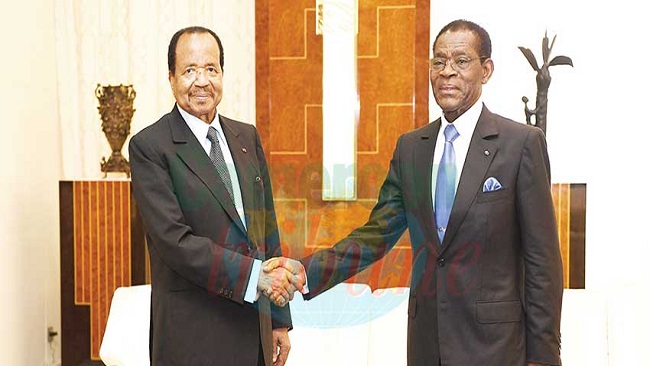Identity checks on Cameroonian nationals in Equatorial Guinea intensify
The land borders of Equatorial Guinea have dawned Tuesday with numerous police controls on the first day of closure after the government of the current president, Teodoro Obiang, announced this decision to avoid “the infiltration of groups” in the face of the presidential campaign, which begins on Thursday.
In view of this indefinite closure, of which today is the first day, the opposition party Movement for the Rebirth of Cameroon (MRC), led by Maurice Kamto, has denounced this Tuesday, according to the news portal Actu Cameroun, acts of xenophobia and torture against Cameroonians at the border.
“The truth is that the implementation of this measure has led to abuses and, in particular, to acts of xenophobia, torture, withholding of goods at the expense of many foreigners and, therefore, of several Cameroonians,” said the national delegate for Human Rights and Governance of the formation, Désiré Sikati.
In recent weeks, identity checks on Cameroonian nationals residing in Equatorial Guinea have been intensified. If they have resided for more than three months on Equatoguinean soil, Cameroonian nationals must present a valid residence permit, as reported by Radio France Internationale.
Teodoro Obiang, who has been leading the country for 43 years, issued a decree confirming the date of the presidential, parliamentary and municipal elections, while putting forward a series of justifications for the advance, including the economic crisis, the COVID-19 pandemic and the “negative effects” arising from the Russian military offensive on Ukraine.
The 80-year-old president, who has ruled the former Spanish colony since 1979, also alluded to the “dire consequences” of the explosions in Bata in March 2021, which left more than a hundred dead and “affected the economic forecasts”.
Obiang assured that holding elections is a “costly investment” and defended that the government already has experience in making several processes coincide in a single appointment. “There is no normative obstacle that prohibits the government from shortening the mandate due to obvious circumstances”, reads the text of the decree.
Equatorial Guinea has 18 legalized political parties, although in practice there is no opposition with real options to offer an alternative to Obiang, whose political future was in doubt due to speculations that pointed to an imminent cession of power to his son ‘Teodorin’.
Source: MSN.Com




